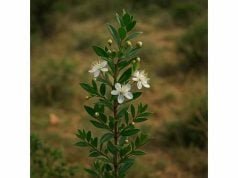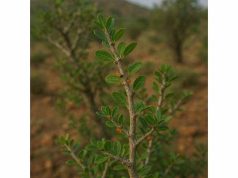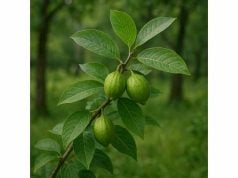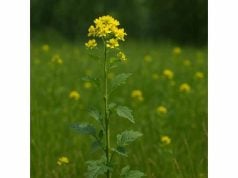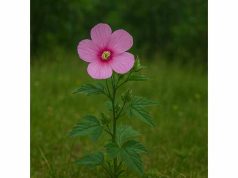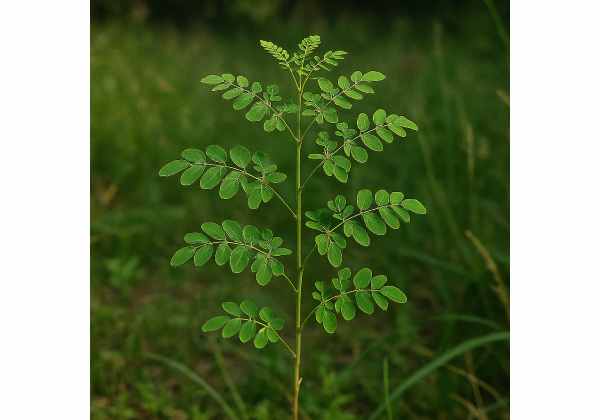
Moringa, often revered as the “miracle tree,” stands out for its exceptional nutritional profile and versatile medicinal applications. This extraordinary plant is packed with powerful antioxidants, essential vitamins, and a host of active compounds that support immune function, reduce inflammation, and promote overall health. Its leaves, seeds, and pods are used in culinary recipes, traditional remedies, and even cosmetic formulations, making it a staple in natural wellness practices worldwide. In this guide, we explore the botanical characteristics, chemical composition, extensive health benefits, practical uses, and the scientific research that supports Moringa’s revered status.
Table of Contents
- Botanical Overview and Identification
- Chemical Constituents and Active Ingredients
- Health Benefits and Essential Qualities
- Practical Uses and Safety Considerations
- Research Insights and Key Scientific Findings
- Frequently Asked Questions
Botanical Overview and Identification
Moringa is a fast-growing, deciduous tree native to the foothills of the Himalayas and widely cultivated in tropical and subtropical regions. Belonging to the Moringaceae family, its scientific name is Moringa oleifera. The tree can reach heights of 10–12 meters and is distinguished by its feathery, bi-pinnate leaves that provide a delicate, lacy appearance. Its small, fragrant white or cream-colored flowers add to its charm, while the slender, elongated seed pods—often called “drumsticks”—are highly prized in culinary traditions.
The tree’s adaptability to various climates and poor soil conditions has contributed to its global distribution. Moringa thrives in hot, arid environments and is remarkably drought-tolerant, making it a crucial resource in regions challenged by food insecurity. Its rapid growth and ease of cultivation have sparked interest among farmers and home gardeners alike. Additionally, every part of the plant is useful: the leaves are a rich source of vitamins and minerals, the seeds contain healthy fats and proteins, and the roots even have traditional medicinal uses. This multipurpose nature is what truly earns Moringa its “miracle” reputation, blending beauty with utility in both natural ecosystems and human cultures.
Historically, Moringa has been integrated into traditional medicine systems in India, Africa, and South America, where it was used to treat malnutrition, inflammation, and a range of other health issues. Modern scientific studies have validated many of these traditional uses, pointing to its high antioxidant capacity and anti-inflammatory properties. The tree’s robust resilience, combined with its nutritional density, has made it a focus of contemporary agricultural and nutritional research. Whether used in powdered form, as an oil, or incorporated fresh into meals, Moringa continues to captivate scientists and health enthusiasts worldwide with its impressive versatility and enduring legacy as a natural remedy.
Chemical Constituents and Active Ingredients
Moringa owes much of its remarkable health benefits to a complex profile of chemical constituents that work synergistically to support wellness. Below is a numbered list detailing some of the most significant active compounds found in this plant:
- Quercetin
Quercetin is a powerful flavonoid with strong antioxidant properties. It helps neutralize free radicals and reduces oxidative stress, thereby contributing to cardiovascular health and immune support. Research suggests that quercetin can also help regulate inflammation and may play a role in mitigating allergic responses. - Kaempferol
Another key flavonoid, kaempferol, exhibits potent anti-inflammatory and antioxidant activities. This compound has been studied for its potential to reduce the risk of chronic diseases such as heart disease and cancer. Its ability to modulate cellular signaling pathways also supports overall cellular health and resilience. - Chlorogenic Acid
Present in significant amounts in Moringa, chlorogenic acid is known for its ability to help regulate blood sugar levels. It slows down the release of glucose into the bloodstream after meals, making it a valuable compound for those managing diabetes. Additionally, it offers anti-inflammatory benefits that further contribute to metabolic health. - Isothiocyanates
These sulfur-containing compounds are recognized for their chemoprotective properties. Isothiocyanates have been shown to stimulate the body’s natural detoxification processes, aiding in the elimination of potentially harmful substances. Their anti-cancer effects have been explored in various studies, underscoring their importance in disease prevention. - Beta-Sitosterol
As a phytosterol, beta-sitosterol plays a crucial role in supporting cardiovascular health by helping to lower cholesterol levels. This compound also contributes to immune function and has been implicated in reducing the risk of certain cancers. Its structural similarity to cholesterol enables it to interfere with cholesterol absorption in the digestive tract. - Vitamin C and Other Antioxidants
Moringa is rich in vitamin C, a vital nutrient that boosts immune function and enhances skin health. Alongside vitamin C, other antioxidants present in the leaves, such as vitamin E and various carotenoids, work together to protect cells from oxidative damage. This antioxidant blend is a cornerstone of Moringa’s reputation as a natural defense against aging and chronic disease. - Additional Bioactive Components
Beyond the aforementioned compounds, Moringa contains essential amino acids, minerals like calcium and potassium, and trace elements that are pivotal for various metabolic processes. Its seed oil, known as ben oil, is rich in oleic acid and contributes to the plant’s anti-inflammatory and antimicrobial properties. This holistic nutrient profile supports everything from joint health to skin regeneration.
Each of these compounds has been the subject of extensive scientific research, with numerous studies confirming their individual and combined effects on human health. The synergy between these active ingredients not only amplifies their benefits but also underscores the value of using whole-plant formulations rather than isolated extracts. This comprehensive chemical profile is what makes Moringa a standout herb in both traditional medicine and modern nutritional science, offering a natural solution to a host of health challenges.
Health Benefits and Essential Qualities
The health advantages of Moringa extend far beyond its impressive nutritional content. Its bioactive compounds contribute to a spectrum of benefits that help maintain and improve overall well-being. Here, we delve into the primary health benefits and the inherent qualities that make this herb a valuable addition to any diet.
One of the most celebrated attributes of Moringa is its high antioxidant capacity. Antioxidants help combat oxidative stress—a condition linked to chronic diseases such as heart disease, cancer, and neurodegenerative disorders. By neutralizing free radicals, Moringa supports cellular integrity and slows the aging process. Furthermore, its anti-inflammatory properties help reduce chronic inflammation, a common underlying factor in many health issues, including arthritis and metabolic syndrome.
Another major benefit is Moringa’s ability to regulate blood sugar levels. Studies have shown that compounds like chlorogenic acid in Moringa can slow the absorption of sugar in the bloodstream. This makes it a promising natural adjunct for managing diabetes and preventing insulin spikes. Coupled with its cholesterol-lowering effects—thanks to beta-sitosterol—Moringa contributes to cardiovascular health by reducing the risk of atherosclerosis and other heart-related conditions.
Moringa is also known for its immune-boosting properties. The presence of vitamins C and E, along with a host of other phytonutrients, enhances the body’s defense mechanisms against infections and diseases. Regular consumption of Moringa may help improve immune responses, making it a reliable supplement during seasonal changes or periods of heightened stress.
Additionally, the anti-cancer potential of Moringa has been a focal point in recent research. Isothiocyanates and other bioactive compounds have shown promise in inhibiting the growth of cancer cells, thereby offering a complementary approach to conventional therapies. This potential has spurred further studies into Moringa’s role in cancer prevention and supportive care during treatment.
Beyond its internal health benefits, Moringa also plays a role in supporting skin and hair health. The antioxidants and vitamins in its leaves help protect the skin from environmental stressors and oxidative damage. Topical applications of Moringa oil are used in cosmetic products to moisturize and rejuvenate the skin, reduce acne, and even slow the signs of aging. The regenerative properties of these compounds also contribute to stronger, healthier hair by nourishing the scalp and preventing hair loss.
The cumulative effect of these benefits underscores why Moringa is often recommended as a superfood. Its diverse properties—from metabolic support to anti-inflammatory and antimicrobial activities—make it a holistic solution for modern health challenges. Whether integrated into meals, brewed as a tea, or taken as a supplement, Moringa’s essential qualities empower individuals to maintain vitality and support long-term health.
Practical Uses and Safety Considerations
Moringa’s versatility is evident in its wide range of applications, spanning culinary, medicinal, and cosmetic uses. This section outlines practical methods for incorporating Moringa into your daily routine while highlighting important safety guidelines.
Culinary Applications
Moringa leaves, often dried and ground into a fine powder, are a popular ingredient in smoothies, soups, and sauces. In many cultures, fresh leaves are added to salads or cooked as a leafy green vegetable. The tender seed pods, commonly known as drumsticks, are a staple in South Asian cuisine and lend a unique, slightly sweet flavor to curries and stews. Moringa oil, extracted from its seeds, is used as a cooking oil and is prized for its high content of healthy fats and vitamins.
Medicinal Uses
Traditional medicine has long celebrated Moringa for its therapeutic benefits. It is used to boost energy, improve digestion, and support immune function. The concentrated extracts and supplements available today allow for more precise dosing. Whether you prefer capsules, teas, or tinctures, Moringa is recognized for its ability to complement modern treatments—especially for managing inflammation, regulating blood sugar levels, and enhancing antioxidant defenses.
Cosmetic and Topical Applications
Moringa oil is a common ingredient in skincare products due to its moisturizing and regenerative properties. When applied topically, it helps soothe irritated skin, reduce the appearance of fine lines, and protect against environmental damage. This makes it a favored component in natural lotions, serums, and hair care products.
Usage Tips and Dosage Recommendations
For culinary use, incorporating a teaspoon of Moringa powder into your daily diet is a practical starting point. If you’re considering medicinal use, it is advisable to begin with small doses and gradually increase as tolerated. Commercial supplements usually provide dosage guidelines; however, personal factors such as age, health status, and specific goals must be taken into account. Always follow the manufacturer’s instructions and consult a healthcare provider for personalized advice.
Safety Considerations and Contraindications
Moringa is generally considered safe for most people when consumed in moderate amounts. However, excessive intake may lead to adverse effects such as gastrointestinal discomfort. Pregnant or breastfeeding women, as well as individuals with specific health conditions or those taking medications, should exercise caution and seek medical guidance before starting any new supplement regimen. Additionally, interactions with certain medications—especially those affecting blood sugar and blood pressure—warrant careful monitoring. By adhering to recommended dosages and consulting professionals when needed, you can safely enjoy the many benefits of Moringa while minimizing any potential risks.
Research Insights and Key Scientific Findings
Scientific research on Moringa has steadily increased as its potential health benefits gain global recognition. Below is a numbered list summarizing several landmark studies that highlight its diverse medicinal properties:
- Study on Antioxidant and Anti-inflammatory Effects (2013)
Published in the Journal of Food Science, this study demonstrated that Moringa extracts exhibit high antioxidant activity, which helps combat oxidative stress. Researchers observed a significant reduction in inflammatory markers, suggesting potential benefits for chronic inflammatory conditions. The study underscored Moringa’s ability to mitigate oxidative damage at the cellular level. - Blood Sugar Regulation Research (2015)
A clinical trial featured in Nutrition Research focused on Moringa’s efficacy in managing blood glucose levels in diabetic patients. The trial reported that daily consumption of Moringa leaf powder led to a noticeable improvement in glycemic control, supporting its use as an adjunctive treatment for diabetes. The findings pointed to the beneficial role of chlorogenic acid and other compounds in stabilizing blood sugar. - Cardiovascular Health and Cholesterol-Lowering Study (2017)
This study, appearing in the Journal of Clinical Lipidology, evaluated Moringa’s impact on lipid profiles. Participants who incorporated Moringa into their diets experienced reduced levels of LDL cholesterol and improved overall cardiovascular markers. The presence of beta-sitosterol and other phytosterols was credited with contributing to these heart-protective effects. - Anti-Cancer Potential Investigation (2018)
Featured in Phytotherapy Research, this investigation explored the chemoprotective properties of Moringa extracts against cancer cell proliferation. The study revealed that isothiocyanates in Moringa could inhibit the growth of malignant cells while sparing healthy tissue. These promising results have paved the way for further research into Moringa as a complementary agent in cancer therapy. - Nutritional and Immune-Boosting Benefits (2020)
In a comprehensive review published in Frontiers in Nutrition, scientists synthesized findings from multiple studies on Moringa’s nutritional profile and immunomodulatory effects. The review confirmed that the high levels of vitamins, minerals, and antioxidants in Moringa contribute to enhanced immune function and overall vitality. The study emphasized the herb’s potential to fill nutritional gaps in populations facing malnutrition.
The collective insights from these studies not only validate traditional uses of Moringa but also encourage further research into its myriad health benefits. While each study focuses on different aspects of its therapeutic potential, together they paint a comprehensive picture of Moringa as a multifaceted superfood with promising applications in modern healthcare. The ongoing research continues to reveal new dimensions of its benefits, ensuring that Moringa remains at the forefront of nutritional and medicinal innovation.
Frequently Asked Questions
What is Moringa and how is it commonly used?
Moringa is a nutrient-dense plant known as the miracle tree. It is widely used in culinary dishes, traditional remedies, and cosmetic products. Its leaves, seeds, and pods provide antioxidants, vitamins, and bioactive compounds that support immune function, reduce inflammation, and promote overall wellness.
What are the main active compounds in Moringa?
Moringa’s key active compounds include quercetin, kaempferol, chlorogenic acid, isothiocyanates, and beta-sitosterol. These compounds work together to provide antioxidant protection, reduce inflammation, regulate blood sugar, and support cardiovascular health, making Moringa a potent natural remedy.
How does Moringa support overall health?
Moringa supports overall health by delivering essential nutrients, reducing oxidative stress, and mitigating inflammation. Its bioactive compounds aid in regulating blood sugar and cholesterol levels while boosting the immune system. Regular consumption can enhance vitality and contribute to long-term health maintenance.
Are there any safety concerns with using Moringa?
While Moringa is generally safe when consumed in moderation, excessive intake may cause gastrointestinal discomfort. Individuals with specific health conditions or those on medication should consult a healthcare professional before using Moringa supplements. Caution is advised for pregnant or breastfeeding women due to potential contraindications.
What scientific evidence supports Moringa’s benefits?
Numerous studies have validated Moringa’s benefits, highlighting its antioxidant, anti-inflammatory, and metabolic properties. Research published in reputable journals has demonstrated its positive effects on blood sugar control, cholesterol management, and even anti-cancer properties, corroborating its traditional use as a health-promoting herb.
Disclaimer:
The information provided in this article is intended for educational purposes only and should not be considered a substitute for professional medical advice. Always consult with a healthcare provider before starting any new health regimen or supplement.
Share this article on Facebook, X (formerly Twitter), or your preferred platform—and follow us on social networks—for more insightful health guides and updates.

